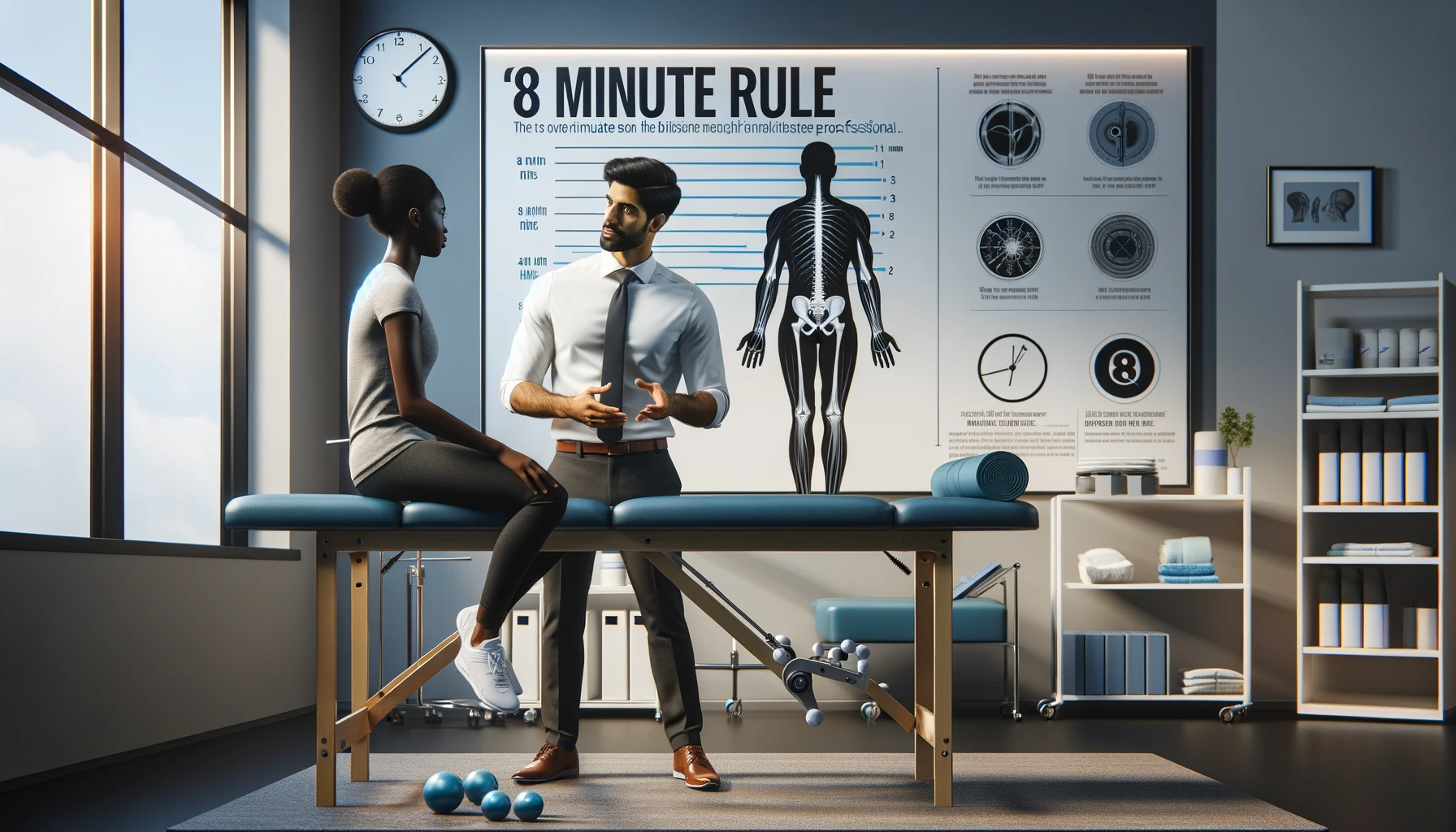- Published on
Demystifying the 8 Minute Rule: A Comprehensive Guide for PTs, OTs, and SLPs
- Authors
- Name
- Angela Mariani

Introduction
In the world of physical therapy (PT), occupational therapy (OT), and speech-language pathology (SLP), the term "8 minute rule" is a familiar one. However, understanding and navigating this Medicare timed-services coding requirement can be a daunting task. This blog post aims to demystify the 8 minute rule, providing a comprehensive guide for PTs, OTs, and SLPs. We will also explore how Everbility can aid in documentation, ensuring compliance with this rule.
- Understanding the 8 Minute Rule
- What PTs, OTs, and SLPs Need to Know About This Medicare Timed-Services Coding Requirement
- Navigating the 8-Minute Rule
- Documentation
- How Everbility Can Help With Documentation
- Conclusion
Understanding the 8 Minute Rule
The 8 minute rule, also known as the Medicare 8 minute rule, is a regulation set by the Centers for Medicare and Medicaid Services (CMS). It is a method of calculating billable time for therapy services. The rule states that for a service to be billable, a therapist must provide treatment for at least 8 minutes. This rule applies to PTs, OTs, and SLPs who bill Medicare for their services. The 8 minute rule is based on units of time, with each unit equating to 15 minutes. Therefore, for a service to be billable, it must be provided for at least half of the unit time, i.e., 8 minutes.
What PTs, OTs, and SLPs Need to Know About This Medicare Timed-Services Coding Requirement
The 8 minute rule is crucial for PTs, OTs, and SLPs as it directly impacts their billing and reimbursement. Understanding this rule is essential to avoid underbilling or overbilling, which could lead to audits, penalties, or loss of Medicare certification. The rule applies to all timed codes, which are services that are billed based on the amount of time spent providing the service. These include therapeutic exercises, manual therapy, neuromuscular reeducation, and more.
Navigating the 8-Minute Rule
Navigating the 8 minute rule can be complex, but it's essential for accurate billing. Here are some key points to remember:
- The rule applies to each patient individually, not the total time spent on all patients.
- The total minutes of service must be at least 8 minutes for one full unit to be billed.
- If multiple services are provided, the total time spent on all services is used to determine the number of billable units.
Documentation
Accurate documentation is crucial when it comes to the 8 minute rule. Therapists must document the start and end times of each service, the total time spent on each service, and the total time spent on all services. This documentation serves as proof of the services provided and is necessary for billing and audit purposes.
How Everbility Can Help With Documentation
In the fast-paced world of therapy, documentation can often feel like a time-consuming task. However, with the advent of AI tools, like Everbility, PTs, OTs, and SLPs can streamline their documentation process, saving time and improving accuracy. Here's how:
- Speed and Efficiency: Everbility can generate comprehensive notes in a fraction of the time it would take to write them manually. By simply inputting key details, therapists can produce detailed and accurate records of each session during the session allowing billing for documentation.
- Consistency: Everbility can help maintain consistency in documentation. It can be set up to follow a specific format, ensuring that all necessary information is included in each note.
- Error Reduction: Everbility can significantly reduce the risk of human error in documentation.
- Accessibility: With cloud-based functionality of Everbility, therapists can access and update their records from any device, at any time. This makes it easier to keep records up-to-date and allows for real-time updates during therapy sessions.
While Everbility can greatly enhance the documentation process, it's important to remember that it’s a tool. It should be used in conjunction with, not in place of, professional judgement and expertise. Therapists should always review and verify the information generated by these tools to ensure its accuracy and relevance. Everbility can be a valuable asset for PTs, OTs, and SLPs looking to streamline their documentation process and ensure compliance with the 8 minute rule. By embracing these innovative technologies, therapists can spend less time on paperwork and more time providing quality care to their patients. Everbility is HIPAA compliant too!
Conclusion
The 8 minute rule is a critical aspect of billing for PTs, OTs, SLPs. Understanding and navigating this rule can be challenging, but with accurate documentation and the help of Everbility, it becomes much more manageable. By mastering the 8 minute rule, therapists can ensure they are reimbursed correctly for their services, allowing them to focus on what they do best - helping their patients.